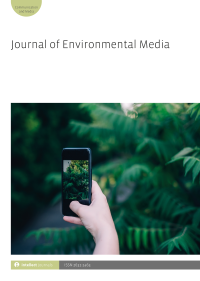-
oa Topic modelling of public Twitter discourses, part bot, part active human user, on climate change and global warming
- Source: Journal of Environmental Media, Volume 2, Issue 1, Mar 2021, p. 31 - 53
-
- 11 May 2019
- 24 Aug 2020
Abstract
Twitter is a key site for understanding the highly polarized and politicized debate around climate change. We examined large datasets comprising about 15 million tweets from different parts of the world referencing climate change and global warming. Our examination of the twenty most active users employing the term ‘global warming’ are likely to be automated accounts or bots than the most active users employing the term ‘climate change’. We used a mixed method approach including topic modelling, which is a digital method that automatedly identifies the top topics using an algorithm to understand how Twitter users engage with discussions on ‘climate change’ and ‘global warming’. The percentage of the top 400 users who use the term ‘climate change’ and believe it is human-made or anthropogenic (82.5%) is much higher than users who use the term ‘global warming’ and believe in human causation (25.5%). Similarly, the percentage of active users who use the term ‘global warming’ were much more likely to believe it is a results of natural cycles (18%) than active users who use the term ‘climate change’ (5%). We also identified and qualitatively analysed the positions of the most active users. Our findings reveal clear politically polarized views, with many politicians cited and trolled in online discussions, and significant differences reflected in terminology.
Funding
- Social Sciences and Humanities Research Council (SSHRC) (Award #430-2018-0769)



